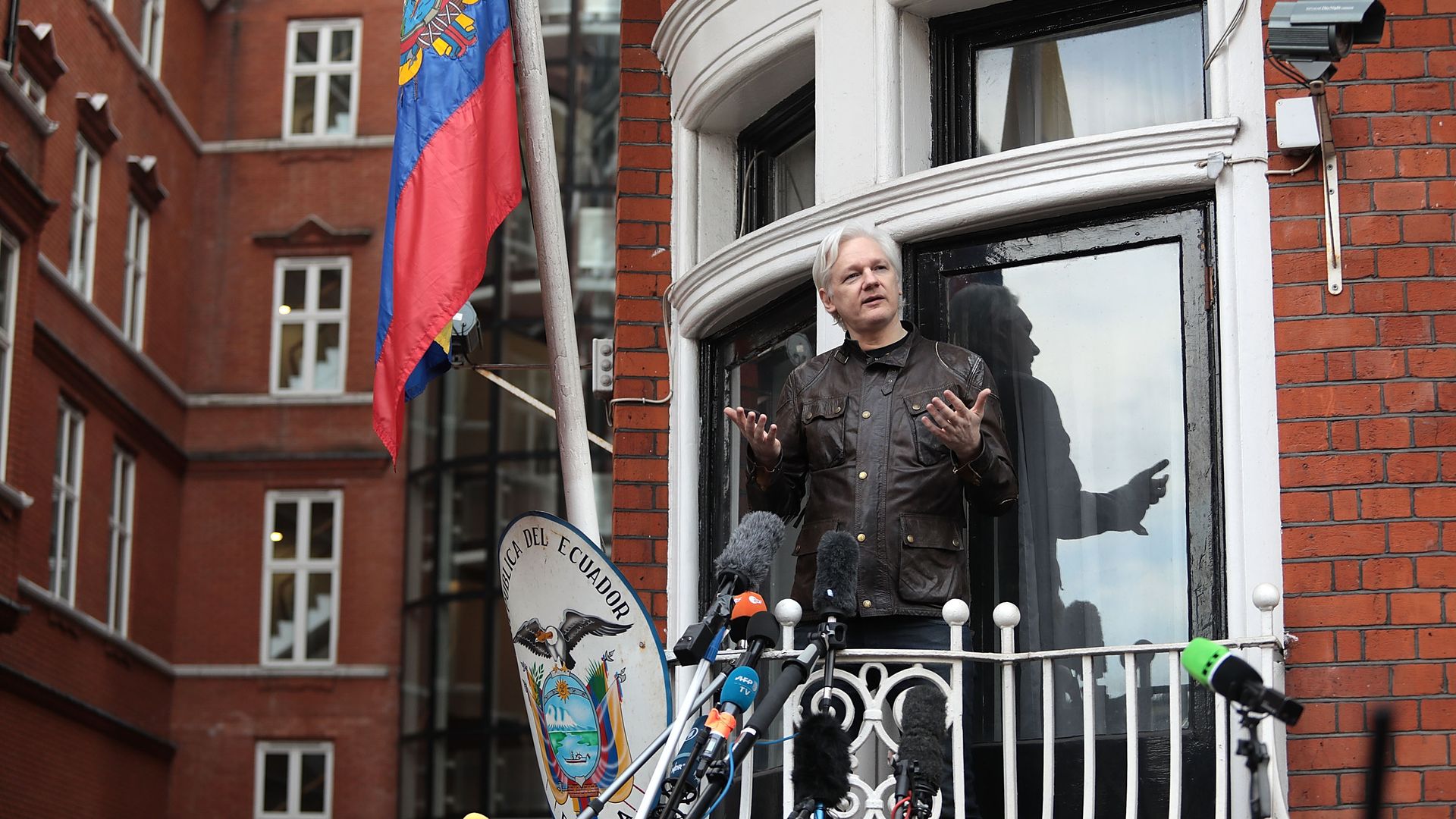Mar 14, 2022 - World
U.K. Supreme Court denies Assange permission to appeal extradition
Add Axios as your preferred source to
see more of our stories on Google.

Julian Assange speaking from the Embassy Of Ecuador in London in 2017. Photo: Jack Taylor/Getty Images
